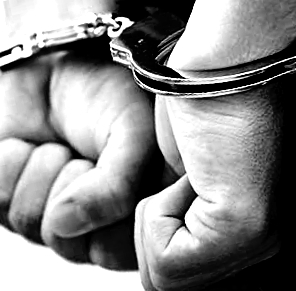Criminal plan questioned
 The NT's plan to lower the criminal age to 10 has sparked fierce debate and backlash.
The NT's plan to lower the criminal age to 10 has sparked fierce debate and backlash.
Northern Territory Chief Minister Lia Finocchiaro has reiterated her government's determination to lower the age of criminal responsibility from 12 to 10 years, a move that has drawn criticism from various quarters, including Indigenous, legal, medical, and human rights organisations.
Ms Finocchiaro says the policy is in line with her government's election mandate.
“Experts can be political commentators all they like,” she said, maintaining that early intervention is key to preventing children from a life of crime.
“Territorians voted emphatically for the CLP's plan to reduce crime, which transparently included lowering the age of criminal responsibility.”
Her stance comes in the wake of warnings from the Productivity Commission and other stakeholders, who argue that the policy is counterproductive.
Earlier this week, Productivity Commissioners Natalie Siegel-Brown and Selwyn Button expressed concerns, calling the government's decision “a step backward” that would increase the incarceration of Indigenous youth.
“The evidence suggests that locking up more children actually increases youth crime,” they wrote.
Despite these warnings, the Chief Minister remains firm, promising that her government will legislate the change when parliament resumes in October.
She said that this reform is necessary to “intervene early” and address the root causes of crime before children are entrenched in the criminal justice system.
Catherine Liddle, chief executive of SNAICC – National Voice for Our Children, voiced her opposition to the plan during an interview with the ABC.
“Jailing doesn’t work,” she said, emphasising that research shows children exposed to the justice system at a young age are more likely to reoffend.
“In fact, all the studies show that those children are the ones more likely to be part of the criminal justice system forever.”
Medical experts have also raised concerns.
Professor Nitin Kapur, head of the Royal Australasian College of Physicians’ paediatric division, described the plan as a “backward step”, arguing that children as young as 10 are not mentally equipped to face the justice system.
“We’re talking about children who’ve got developmental vulnerability… their actual mental age could be six or seven years,” she said.
The debate over the policy has brought to the fore concerns about its impact on Indigenous children, who are already disproportionately represented in youth detention in the Northern Territory.
The NT Child Commissioner, Shahleena Musk, warned earlier this month that the proposed changes would cause further harm to vulnerable children, reinforcing behaviours the system is trying to prevent.
“I am deeply concerned about the proposed changes to lower the age of criminal responsibility,” she said.
Ms Finocchiaro’s plan is part of a broader law-and-order agenda, which also includes the reintroduction of spit hoods in youth detention.
Critics, including newly elected NT opposition leader Selena Uibo, have cautioned that such policies will worsen the cycle of youth crime.
“What will make a real difference is investing in education and providing pathways to a job and away from a life of crime,” she said.








 Print
Print